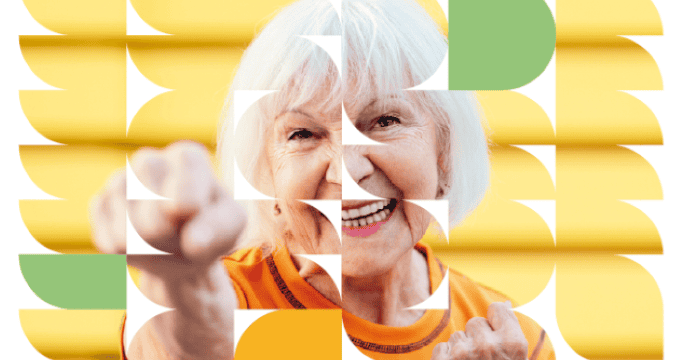
Regions – a different concept
6 minutes of reading
2nd edition of “Observatoire des usages et représentations des territoires” in which Bouygues Construction is a partner
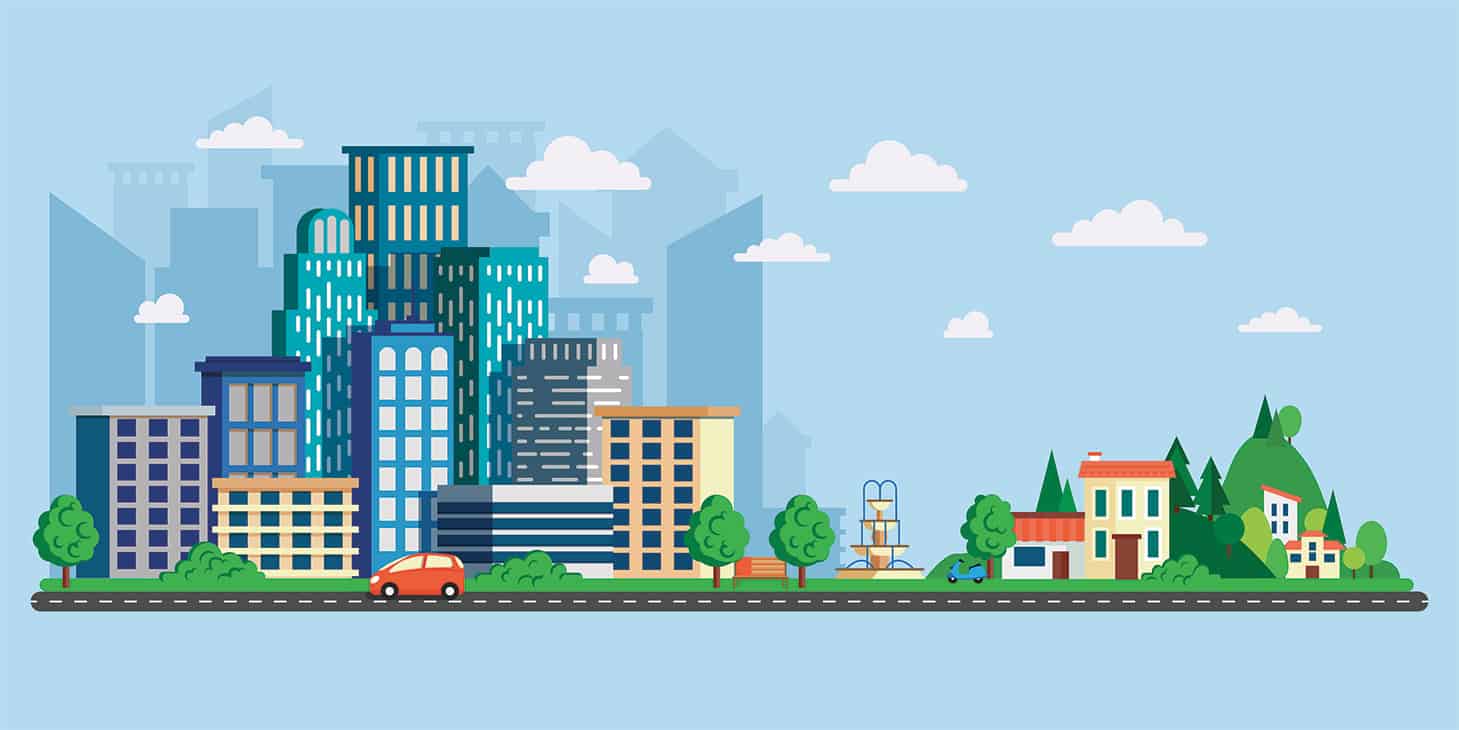
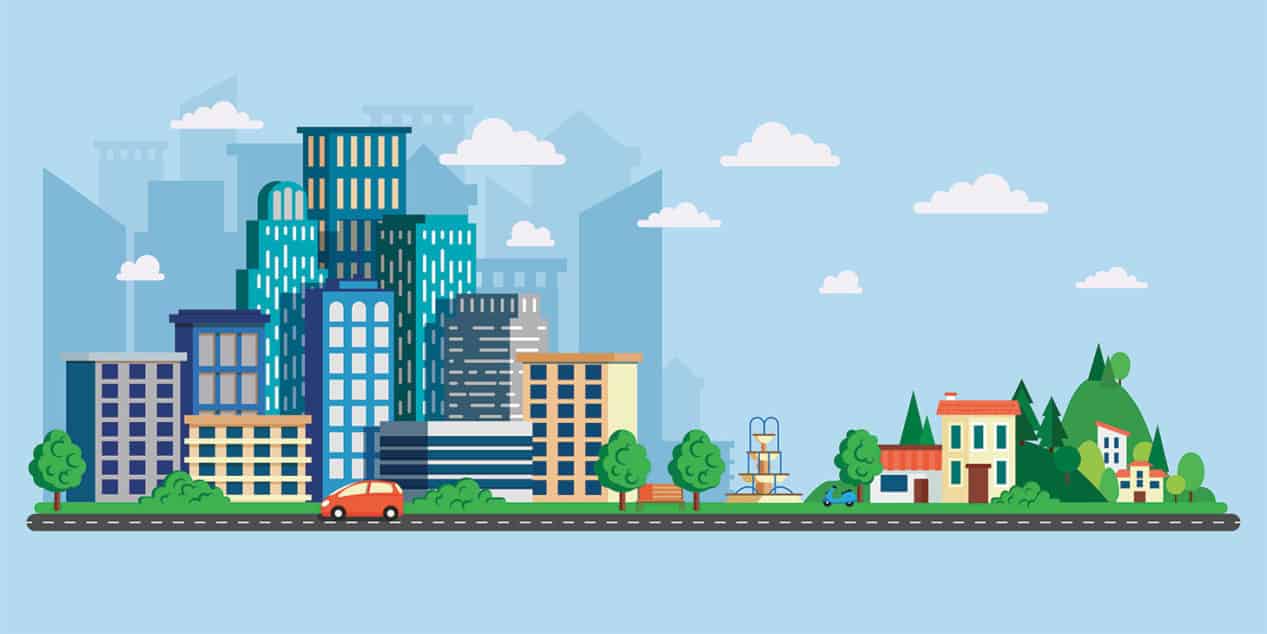 53% of French people aspire to living elsewhere. This desire, greater than in 2017, has increased by 5 points in two years and has now become the ambition of the majority. As this study was carried out before the Covid-19 health crisis, some aspirations will certainly be more in evidence at the moment…
Confirming the analysis of the previous edition of the Observatoire[1], the model of the town in general and the metropolis in particular loses its attraction with ordinary members of the public as it is for many associated with an area of concentrated congestion, stress, pollution, etc. Even though more than three-quarters of the French population live in towns, this question is raised.
Moreover, this urban model reaches its limits in regional imbalances. The Gilets Jaunes movement took root in the increasing distance between inhabitants and resources. The Observatoire highlighted the influence of national and regional development on this dissatisfaction and revealed the desire for “proximities” – accessibility to work and amenities and quality of neighbourhoods.
The Observatoire des usages et représentations des territoires, published by ObSoCo and Chronos in partnership with the ADEME, the Banque des Territoires, Bouygues Construction and La Poste, provides information to objectivise the tensions at work in regional reports as well as imagined urban lifestyles, undergoing profound transformation. Hence the goal of this Observatoire to deliver keys to rethinking where we live and ways of developing towns, converging towards the new desires and aspirations of the inhabitants, and creating conditions for a good, indeed better, quality of life.
53% of French people aspire to living elsewhere. This desire, greater than in 2017, has increased by 5 points in two years and has now become the ambition of the majority. As this study was carried out before the Covid-19 health crisis, some aspirations will certainly be more in evidence at the moment…
Confirming the analysis of the previous edition of the Observatoire[1], the model of the town in general and the metropolis in particular loses its attraction with ordinary members of the public as it is for many associated with an area of concentrated congestion, stress, pollution, etc. Even though more than three-quarters of the French population live in towns, this question is raised.
Moreover, this urban model reaches its limits in regional imbalances. The Gilets Jaunes movement took root in the increasing distance between inhabitants and resources. The Observatoire highlighted the influence of national and regional development on this dissatisfaction and revealed the desire for “proximities” – accessibility to work and amenities and quality of neighbourhoods.
The Observatoire des usages et représentations des territoires, published by ObSoCo and Chronos in partnership with the ADEME, the Banque des Territoires, Bouygues Construction and La Poste, provides information to objectivise the tensions at work in regional reports as well as imagined urban lifestyles, undergoing profound transformation. Hence the goal of this Observatoire to deliver keys to rethinking where we live and ways of developing towns, converging towards the new desires and aspirations of the inhabitants, and creating conditions for a good, indeed better, quality of life.
Density: a major issue for quality of life
- Although 60% of French people think that the density of their commune is “ideal”, this raises the problem of the remaining 40%: more than one French person in ten thinks their commune is “too empty” (12%) but above all more than a quarter think it is “too dense” (28%).
- This perception of density it turns out plays a major role in the desire to live elsewhere. 80% of those who feel the density is too high in their commune wish to escape it. The same applies – even if the proportions are smaller – at the other end of the spectrum: 61% who think “a bit too empty” and 57% “much too empty” wish to live elsewhere.
- As such, density is at the heart of what contributes to quality of life. Among those who declare they suffer from a bad quality of life, only 21% think that their commune is of an “ideal” density when, at the other end of the scale, 75% those who say they benefit from a very good quality of life are satisfied with their level of density.
Environmental concerns associated with the regions
- Environmental concerns, which we see more and more in opinions, are focussed very clearly on living areas. Thus, more than a third of French people (39%) would be likely to reconsider where they live due to threats associated with global warming on their quality of life.
- Furthermore, more than one in two French people has already felt discomfort associated with the quality of air in their commune leading to the establishment of a clear link with the sensitive question of health. Currently it could be worthwhile measuring the impact of the Covid-19 heath crisis on the aspirations of the French especially in terms of living spaces, lifestyles and uses.
The imaginary “nature” town
- In this context, and while the town is thought of as the area of concentrations, it is the imaginary village which appears the most attractive for French people: 81% would love to live there (including 45% who would “very much like to live there”). Then comes the suburban dwelling (66% would love to live there, including 25% with a strong desire to live there), far ahead of the futuristic town with its technological promises or the modern town and its functional organisation (respectively 27%/10% and 25%/10%).
The town on a human scale
- Even so and when you dig deeper into the concrete aspirations of the French, a paradox emerges. Although their ideal tends towards a rather rural environment (38% would like to live “in contact with nature”), in almost equal proportions, they also want the benefits and promises of an urban life which are being near their friends and family, shops and services (respectively 37% and 34%), far ahead of somewhere where they have a lot of space (28%), where they can get around easily by car (15%), a beautiful district (11%) or a lively area (9%).
- Finally, a desire to rebalance which, when the result is analysed closely, leads to the observation that the French would ideally like to live in a commune slightly less dense than the one they currently inhabit.
- The question of nearness echoes that of travel. Although 65% of French people declare themselves to be satisfied and describe as “appropriate” the distances they travel each week to get to work, on the other hand 32% find the distances too great and would like to have the option of carrying out their daily work much nearer. The most contentious issue being undoubtedly, the home-work journey for which the ratio between effective distance (50 minutes on average) and ideal distance (28 minutes) turns out to be very important.
- To these distances can be added the feeling of less access to public services: 33% of French feel that the number of public services has reduced in their communes over the last five years (14% increased, 43% stayed the same).
The “walkable” city
- With regard to public transport, 33% of French people would like to use this mode of transport first, but only 19% actually do this.
The digital city on the other hand came up against a certain amount of reticence
- Although digital technology could overcome a number of the difficulties observed in our Observatoire, by supplementing physical proximity with digital accessibility, we observed a certain reticence indeed mistrust in this area: 60% of French people stated that they had given up the use of a digital service in order not to pass on their personal data.
- Above all, 76% think that passing on their personal data did not really enable them to benefit from an offer most suited to their requirements. The city will therefore only be smart insofar as it can provide additional well-being to its inhabitants.
- However it would take services which could improve individuals’ daily lives (short circuits, energy consumption and health) to make the French more disposed towards sharing their data.
Methodology
The Observatoire des usages et représentations des territoires made use of an on-line survey on the Respondi panel from 13 to 29 November 2019, using a sample of 4,000 individuals representing the French population aged from 18 to 70. So as to guarantee the representativeness of the sample, quotas were established on the overall population questioned using the following criteria: sex, age, occupational group, region of residence, size of conurbation of residence and level of diploma. A rectification was applied to the raw data to fine tune the final sample to national quotas. The Observatoire des Usages et représentations des territoires is published with the support of: |
|
The ObSoCo
We are in a period of profound transformation of society, the economy and business. The desire of individuals to live and consume “differently”, increasing fragmentation of the public space and markets, general mistrust of companies and institutions, a challenge for ecological restraint, technological disruptions, long-standing tensions over the cost of living for households, etc. the capitalist development system is in transition. In its wake are economic models of the company and organisation of activities aiming to satisfy the expectations of citizens and consumers which are undergoing redefinition to new forms of value creation. This context requires the provision of new concepts and the forging of new perspectives to understand the new order and to support economic players in their adaptation strategies. The mission of the ObSoCo is based on this vision. www.lobsoco.com Contact Guénaëlle Gault, director general: g.gault@lobsoco.com Agnès Crozet, general secretary: a.crozet@lobsoco.com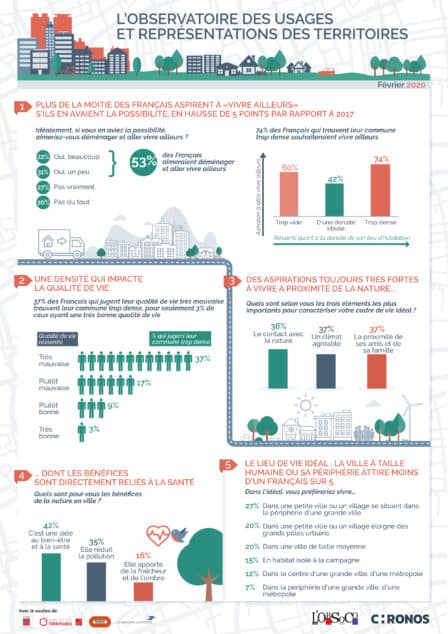
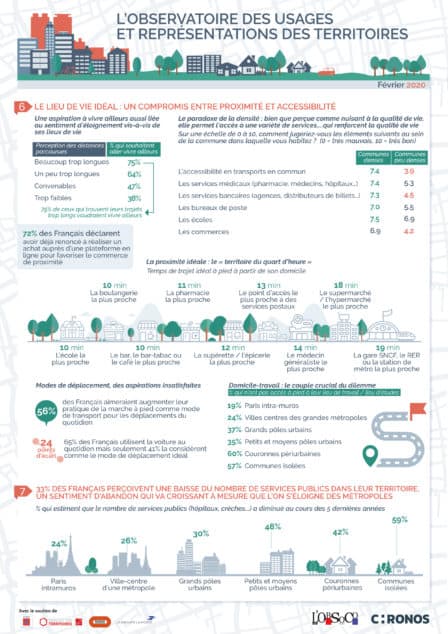
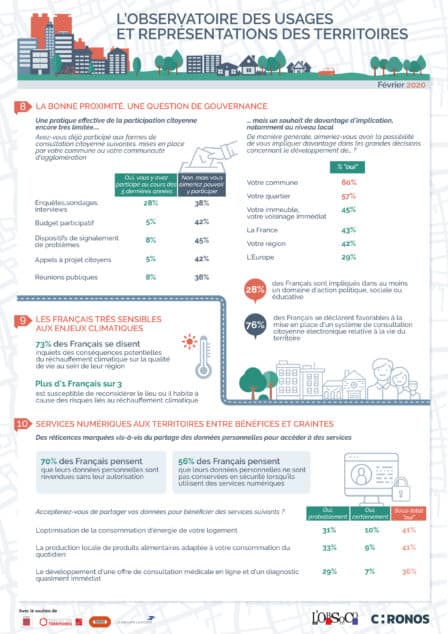 [1] The Observatoire des usages émergents de la ville (2017), published by ObSoCo and Chronos with the support of the ADEME, Clear Chanel, the CGET and Institut Vedecom
[1] The Observatoire des usages émergents de la ville (2017), published by ObSoCo and Chronos with the support of the ADEME, Clear Chanel, the CGET and Institut Vedecom More reading
Read also


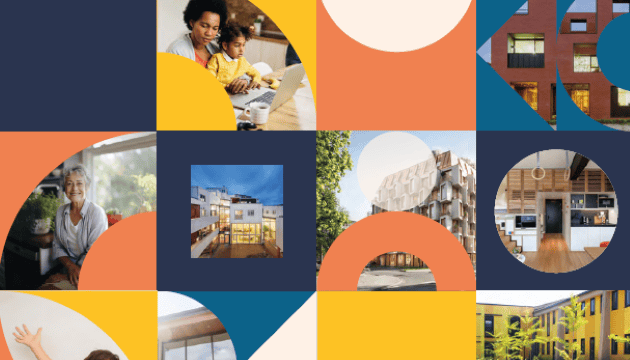
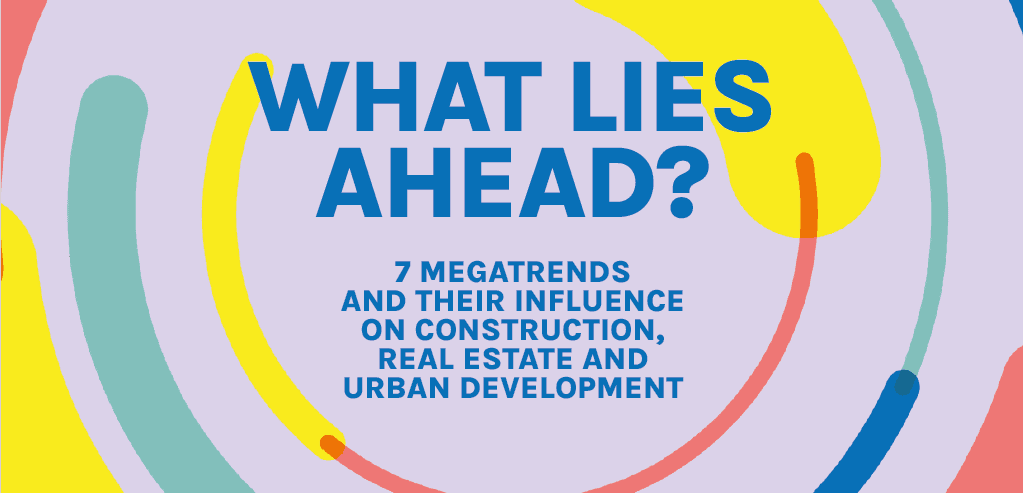
What lies ahead? 7 megatrends and their influence on construction, real estate and urban development
Article
20 minutes of reading

